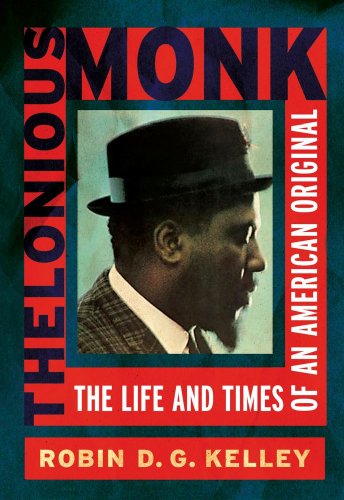 Ordered what appears to be a wonderful book on Monk by Robin D. G. Kelley that explores his many moods and debunks many of the myths surrounding him.
Ordered what appears to be a wonderful book on Monk by Robin D. G. Kelley that explores his many moods and debunks many of the myths surrounding him.Throughout the book, Kelley plays down Monk’s “weirdness,” or at least contextualizes it. But Monk did little to discourage the popular view of him as odd. Always a sharp dresser and stickler for just the right look, he also favored a wide array of unconventional headgear: astrakhan, Japanese skullcap, Stetson, tam-o’-shanter. He had a trickster sense of humor, in life and in music, and he loved keeping people off-balance in both realms. Off-balance was the plane on which Monk existed. He also liked to dance during group performances, but this served very real functions: first, as a method of conducting, communicating musical instructions to the band members; and second, to let them know that he dug their playing when they were in a groove and swinging.
For Jazz lovers it appears this book is a must.
Clint Eastwood produced a wonderful documentary on Monk some years back entitled "Straight, No Chaser." Here is the classic number,
ReplyDeletehttp://www.youtube.com/watch?v=yxX0-OaI5j0